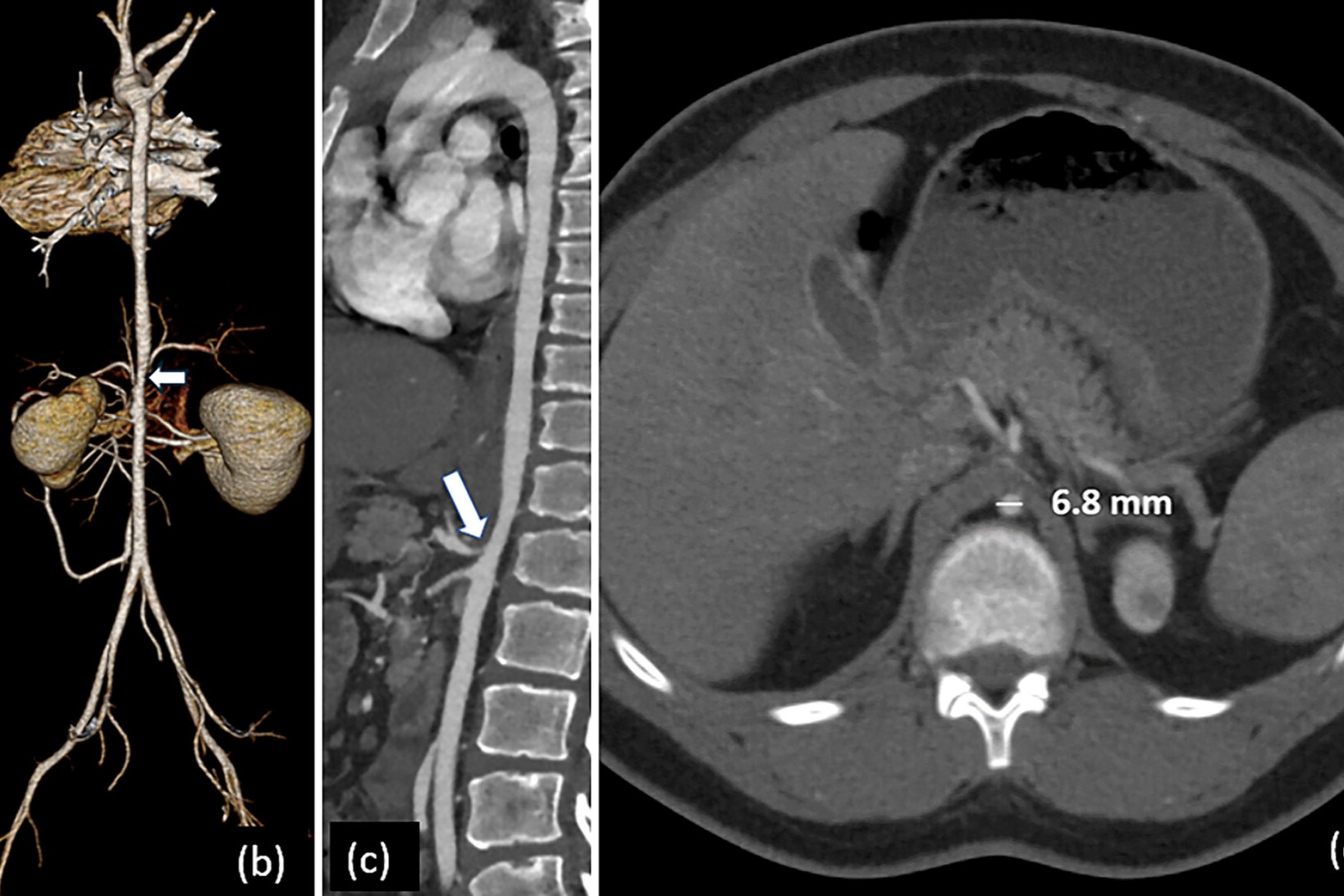
Ruvalcaba–Myhre–Smith Syndrome is a rare genetic disorder that affects multiple parts of the body. Named after the doctors who first described it, this syndrome is characterized by a variety of symptoms including developmental delays, intellectual disabilities, and distinct facial features. Caused by mutations in the PTEN gene, it can also lead to an increased risk of certain cancers. Understanding this condition is crucial for early diagnosis and management. In this blog post, we'll explore 25 intriguing facts about Ruvalcaba–Myhre–Smith Syndrome, shedding light on its symptoms, causes, and treatments. Whether you're a medical professional, a student, or just curious, these facts will provide valuable insights into this complex disorder.
Key Takeaways:
- Ruvalcaba–Myhre–Smith Syndrome (RMSS) is a rare genetic disorder causing physical traits like large head size and skin abnormalities. It can lead to health complications, requiring regular monitoring and multidisciplinary care.
- Early diagnosis through genetic testing and family history can improve management and outcomes for individuals with RMSS. Support groups, educational accommodations, and regular healthcare appointments are essential for navigating the challenges of living with RMSS.
What is Ruvalcaba–Myhre–Smith Syndrome?
Ruvalcaba–Myhre–Smith Syndrome (RMSS) is a rare genetic disorder. It affects multiple systems in the body, leading to a variety of symptoms. Understanding this condition can help those affected and their families.
-
RMSS is a genetic disorder caused by mutations in the PTEN gene. This gene helps regulate cell growth.
-
The syndrome is named after the doctors who first described it: Ruvalcaba, Myhre, and Smith.
-
RMSS is part of a group of disorders known as PTEN hamartoma tumor syndromes (PHTS).
-
People with RMSS often have macrocephaly, which means an unusually large head size.
-
Developmental delays are common in individuals with RMSS. These delays can affect speech, motor skills, and cognitive abilities.
Physical Characteristics of RMSS
Individuals with RMSS often exhibit distinct physical traits. These characteristics can help in diagnosing the syndrome.
-
Skin abnormalities, such as lipomas (fatty tumors) and trichilemmomas (benign skin tumors), are frequently observed.
-
Gastrointestinal polyps, which are growths in the digestive tract, are common in RMSS patients.
-
RMSS can cause vascular anomalies, including hemangiomas (benign blood vessel tumors).
-
Dental issues, such as delayed tooth eruption and dental crowding, are often present.
-
Short stature is another physical characteristic seen in many individuals with RMSS.
Health Complications Associated with RMSS
RMSS can lead to various health complications. These complications require careful monitoring and management.
-
Individuals with RMSS have an increased risk of developing certain types of cancer, including breast, thyroid, and endometrial cancer.
-
Thyroid abnormalities, such as goiter and thyroid nodules, are common in RMSS patients.
-
Seizures can occur in some individuals with RMSS, requiring medical intervention.
-
Gastrointestinal issues, including chronic constipation and diarrhea, are frequently reported.
-
Behavioral and psychiatric issues, such as anxiety and autism spectrum disorder, are more prevalent in RMSS patients.
Diagnosis and Genetic Testing
Diagnosing RMSS involves a combination of clinical evaluation and genetic testing. Early diagnosis can improve management and outcomes.
-
Genetic testing for mutations in the PTEN gene is the primary method for diagnosing RMSS.
-
A detailed family history can help identify potential cases of RMSS, as the condition can be inherited.
-
MRI and CT scans are often used to assess brain and body abnormalities in RMSS patients.
-
Regular cancer screenings are recommended for individuals with RMSS due to their increased cancer risk.
-
Multidisciplinary care, involving specialists such as geneticists, neurologists, and oncologists, is crucial for managing RMSS.
Living with RMSS
Living with RMSS presents unique challenges. Support and resources can help individuals and their families navigate these challenges.
-
Early intervention programs can aid in addressing developmental delays in children with RMSS.
-
Support groups and counseling can provide emotional support for families affected by RMSS.
-
Educational accommodations, such as individualized education plans (IEPs), can help children with RMSS succeed in school.
-
Regular follow-up appointments with healthcare providers are essential for monitoring and managing RMSS-related health issues.
-
Research on RMSS is ongoing, with scientists working to better understand the condition and develop new treatments.
Final Thoughts on Ruvalcaba–Myhre–Smith Syndrome
Understanding Ruvalcaba–Myhre–Smith Syndrome can be challenging, but knowing the facts helps. This rare genetic disorder affects multiple systems in the body, leading to unique physical and developmental characteristics. Early diagnosis and intervention are crucial for managing symptoms and improving quality of life.
Families dealing with this syndrome should seek support from medical professionals and connect with communities facing similar challenges. Staying informed about the latest research and treatments can make a significant difference.
Remember, while the syndrome presents many hurdles, advancements in medical science offer hope. Awareness and education about Ruvalcaba–Myhre–Smith Syndrome can lead to better support and resources for those affected.
Keep learning, stay connected, and never hesitate to reach out for help. Knowledge empowers us to face even the rarest conditions with confidence and compassion.
Frequently Asked Questions
Was this page helpful?
Our commitment to delivering trustworthy and engaging content is at the heart of what we do. Each fact on our site is contributed by real users like you, bringing a wealth of diverse insights and information. To ensure the highest standards of accuracy and reliability, our dedicated editors meticulously review each submission. This process guarantees that the facts we share are not only fascinating but also credible. Trust in our commitment to quality and authenticity as you explore and learn with us.
